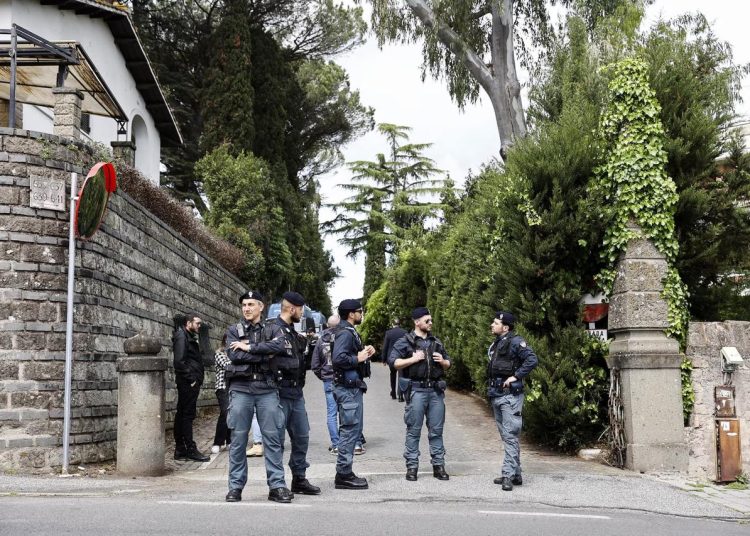The second round of indirect talks between Iran and the United States, facilitated by Oman, have wrapped up today in Rome, Iran Nuances learned.
Following the indirect talks in Rome, the Iranian Foreign Minister, Abbas Araghchi, offered his assessment of the session, stating that the talks had lasted four hours and were “moving forward,” continuing the momentum from the previous meeting in Muscat. He said that the delegations had successfully reached “a better understanding regarding a number of principles and goals” during the Rome round.
Looking ahead, the Minister announced that it was decided the negotiations would continue and “enter the next stages.” This next phase will involve the commencement of expert-level discussions, with technical negotiations scheduled to begin this Wednesday, April 23, in Oman. He specified that these expert sessions would focus on the technical details relevant to the potential agreement.
The Iranian Foreign Minister added that he would meet with the US envoy again next Saturday, April 26, in Oman to “review the results of the experts’ work.” He characterized the Rome negotiations as having been held in a “constructive atmosphere” and reaffirmed that they are “moving forward.” Despite this positive framing, he offered a cautious outlook, remarking that “there is no reason for excessive optimism or excessive pessimism” at this stage, but expressing hope that after the upcoming technical sessions, they would find themselves in “a better position” the following week.
Responding to a question about the simultaneous presence of Rafael Grossi, Director General of the International Atomic Energy Agency (IAEA), in Rome, the Iranian Foreign Minister clarified that the current stage of negotiations does not necessitate the IAEA’s direct involvement within the talks. He acknowledged, however, that expert viewpoints from the agency can sometimes be helpful during negotiations, noting that in the past, they have occasionally invited IAEA experts or consulted with the Director General himself during negotiation periods.
The Minister explained that Grossi’s trip to Rome was on his own initiative, primarily for meetings with Italian officials. He also mentioned that Grossi had reportedly met with the US envoy, Steve Witkoff, while in Rome. The Iranian Foreign Minister viewed it positively that Grossi is being kept informed about the negotiation process. He added that he himself had recently met with Grossi in Tehran and suggested that he might have met him in Rome had that earlier meeting not occurred.
Looking ahead, the Foreign Minister emphasized that the IAEA “will be a part of this process” and “will have an important role.” He reiterated that while Grossi’s presence in Rome was useful in a broader sense, the agency’s involvement inside the specific negotiation sessions is not yet required because the talks have not reached the stage where that would be necessary.
Meanwhile, Oman Ministry of Foreign Affairs, in an official statement, announced that Iran’s Foreign Minister Araghchi and US Presidential Envoy Witkoff, through the mediation of Oman’s Foreign Minister AlBusaidi, “have agreed to enter into the next phase of their discussions that aim to seal a fair, enduring and binding deal which will ensure Iran completely free of nuclear weapons and sanctions, and maintaining its ability to develop peaceful nuclear energy.”





